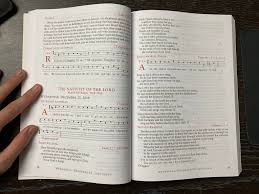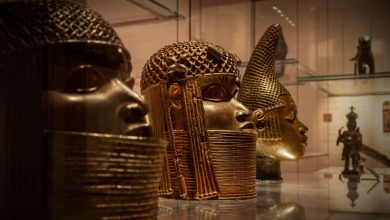Art, Media & Review
Review of the Book: “Yesterday For Our Tomorrow” By Ignatius I. Ishie

The book, ‘Yesterday For Our Tomorrow’ is a thought-provoking literature that explores various themes and moral lessons through 15 chapters of historical fiction. Here’s a breakdown of the book’s key points.
The first two chapters highlighted the importance of parental guidance in shaping a child’s future.
The stories illustrated how pampering and undue influence could have negative effects, while collaborative parenting could lead to success.
The author presented polygamy as a complex issue, suggesting that it could be beneficial if well-managed.
However, the societal implications and potential drawbacks were also discussed in the book.
Chapter three emphasised the dangers of ignorance and the benefits of western education in a village setting.
The story showcased how ignorance could lead to superstition and misinformation.
Throughout the book, the author stressed the importance of considering the consequences of one’s actions.
This is evident in stories about characters who face challenges due to their past decisions.
The book advocated for moral values such as honesty, humility, and responsibility.
The stories demonstrated how these values could lead to success and a fulfilling life.
Chapter 10 shedded light on the complexities of Nigerian politics, highlighting the need for caution and good advice when venturing into politics.
The stories reflected on various societal issues, such as the importance of community, the dangers of materialism, and the impact of parental decisions on children.
In all, “Yesterday For Our Tomorrow” offers valuable insights into human nature, morality, and the importance of responsible decision-making.
The book’s simple yet engaging language makes it accessible to a wide range of readers, including community leaders, politicians, teachers, and parents.
Review of the Book: “Yesterday For Our Tomorrow”By Ignatius I. Ishie
We are all gathered here today on account of a senior citizen, Mr. Dennis Medi to lunch his book “Yesterday For Our Tomorrow,” published by UCC Press, Onitsha in 2025.
Obviously, this is the first edition of the book with 208 pages and 15 chapters of historical fiction.
In essence, the book is an amalgam of 15 folklores.
The stories in the first two chapters of the book are focused on the critical role of parents in the formative years of children in a polygamous setting and how parental guidance and influence could affect what a child becomes in life.
Chapter one (Beyond Redemption), illuminates how the principal character (Sydney) being the mother’s only male child in a polygamous home that produced eight male children, was pampered and how the undue influence of his mother in his formative years, had a far-reaching negative effect on him.
In chapter two (Destiny Cannot Change) there was a collaborative effort between Okolo and his two wives in their children up-bringing in a polygamous home with only female children.
Although one of the daughters initially derailed, all seven daughters later became successful and took very good care of their parents, even though at a time, their father did not feel good about not having a male child.
The picture painted in this chapter is that of a polygamist by circumstance, and an unhappy father of seven female children, who reluctantly accepted his fate and ended up living a happy and fulfilled life, courtesy of his seven daughters.
He was celebrated in life and after his death at the age of 90. The story in this chapter reflects the society we live in: a society where it is considered an honour and greater achievement to have male children.
However, history is replete with the stories of daughters who lifted their families out of poverty and/or brought their family names into limelight.
Ditto male children who caused their parents pains and brought disrepute to their family names.
One could note how the author named the central figure in this chapter as Mr. James Okolo, initially, and then later as Chief Okolo, a notable and influential community man.
Indeed, for a child to be successful in life, what matters is the upbringing and not the gender.Both chapters one and two seem to suggest that polygamy in itself is not bad, if well managed by those involved.
However, since I am not an advocate of polygamy, I have difficulties agreeing to this suggestion. But without being immodest, I dare to say that the society is not unaware of the latent heat of unhealthy and sometimes destructive competition that characterise a typical polygamous home.
Chapter three dwells on the pervading influence of ignorance in a village setting with an interplay of western education, Christianity, and the African traditional belief in witchcraft and fetish practices.
That was the environment that Amalife Udogwu grew up. His father, Udogwu Ojenuwe, a peasant farmer, welcomed western civilization and the Catholic faith, and therefore ensured that his first son, Amalife, studied and became a village teacher.
He also influenced his children to embrace the faith. In this chapter, the author portrays ignorance as a majority factor within the village setting that tend to becloud the people’s objective perception of their environment, and in a manner that smacks of affirming the saying that: “In the country of the blind, the man with one eye is the leader.”
Ignorantly, the community saw Amalife as a leading light, an all-knowing teacher, and the most intelligent man of his time, who was the only source of information on current affairs to the villagers.
In those days, he also helped to read and write letters for the villagers. Amalife had a happy marriage that produced two girls and a boy until, against his Catholic faith and his father’s wish, decided to take a second wife in his desire to have more male children.
The second wife gave birth three times and each of them died in infancy. The level of his ignorance was later to manifest in his fetish belief that evil forces/witches were responsible for the death of his children.
Amalife pointed accusing fingers at his own mother who could not survive the trauma caused by the accusation of witchcraft levied against her.
The mother of Amilife’s second wife also suffered the same fate from her own daughter, Beatrice. Amalife’s first wife, Omogor, was not left out in the accusation.
However, on the advice of his younger brother, a Technical College graduate who just got a job placement in an oil company, Amalife undertook a genotype test.
The result revealed that Amalife was AS and Beatrice his wife SS. Thus, the cause of the death of their children was sickle cell disease. In “Mr. Lover Boy” which is the 4th chapter of the book, the author emphasises once again the negative effect of pampering and awakening in the child, a false feeling of being special.
Having been given birth to unexpectedly at the time his parents least expected to have another child, Ugo was considered a special child and therefore over-pampered.
Deceived by his circumstance as a child together with his acclaimed brilliance as a student, and misled by the attraction from the opposite sex that his academic brilliance brought to him.
Ugo became a wayward child, more concerned with how to sustain his prurient life of unbridled social binge with girls, rather than focusing on his studies and planning for his future.
Against all good advice, his pursuit of pleasure at the expense of his future, and his perceived material progress were later to become his albatross.
Having lured many young ladies into abortion when the going was good, Ugo later spent a fortune in his quest to have a child, to no avail. Worst still, he was retrenched at the age of 56 for lack of a university degree or Diploma Certificate.
There is a saying that morning rules the day. In Ugo’s case, his bad beginning ruined his entire life. No matter the circumstances of their birth, it is very important parents inculcate a sense of discipline and responsibility in their children and thereby train them to become good citizens.
The story in chapter five, “One Good Turn” is woven around one Jonah, the son of a successful hunter and farmer, Ojega, who is believed to have been killed by a wild animal while hunting.
Jonah’s mother became averse to hunting due to the circumstances surrounding her husband’s death.
Having dropped out of school after his father’s death, Jonah resorted to menial jobs and sometimes games hunting, but in order not to offend his mother, he never brought his games home.
Instead, he sold them and used the proceeds to support his family. His disposition towards life moved Jonah to help in saving the life of a missionary who later became his benefactor and took care of his education, and thus transformed his life for the good of his mother, siblings, and his community.
The author’s story brings to the fore, the need to be humane and charitable to family members and outsiders. Afterall, charity, they say, begins at home.
The author also advocates here that no matter their circumstances, every child could become an achiever, by confidently towing the path of hard work, and humane life.
In chapter six, the author expressed his belief in “Retribution.” His narration is on how Johnson Odubulu, the son of a peasant farmer became very successful by dint of hard work, as well as the goodwill and support of charitable townsmen and village union.
The story speaks to a time when life was communal and convivial. When he became affluent, Johnson never appreciated the goodwill and generosity of his townsmen and village union towards him, let alone give back to the children of indigent villagers.
Literally, he spurned the people that made him, and became very self-centred and transactional, channelling all his efforts at enriching himself, as well as repositioning his children and family members.
However, in retirement, things took a different turn for Johnson, as his children grew up to become wayward and less-concerned about him.
All his children studied overseas, but two of them returned to the country in shameful circumstances and started selling-off Johnson’s property before his death.
At death, Johnson’s property became the cause of fight between the two sons. Johnson’s story is a reflection of the society we live in today, where self-interest holds sway to the detriment of the common good, and where materialism is pursued, and wealth hoarded and bequeathed to non entities.
In chapter seven (Sowing and Reaping) the author paints a vivid picture of how vainglory, the distracting fame of sporting prowess, and inordinate ambition could derail a child and destroy his life.
In the story, Jude and Paul became friends the very first day they met in primary school, and both of them did averagely well in their studies until, due to their excellent performance in sports, they became very popular and this negatively affected their performance in examinations.
Jude later became a village teacher on the strength of a Grade III Teachers’ Certificate and later had Teachers Grade II Certificate as his highest qualification, while Paul got employed in a multi-national company in Lagos as a Clerical Assistant.
Rather than develop themselves for successful career in their respective employments, Jude indulged in occultism and fetish practices, while Paul, with the assistance of Jude, desperately resorted to fetishism and killing of any employee that was deemed more qualified than himself for management positions.
Although, initially they seemed to be making progress, Jude and Paul ended up as failures in their careers, family lives and as community men.
Here the author seems to advocate that to have a good career, and thereby live a well-accomplished life, children in their formative years need to be properly nurtured and trained to be focused.
They should never be allowed to become distracted by whatever academic success they register or the vainglory that sporting talents bring.
In “The Invincible Act of God” which is chapter 8 of the book, the author while expressing his belief that God rules in the affairs of man, posits that focus and useful hard work, amidst oppression and rejection attracts God’s blessings.
In this chapter, the author narrates how Mr. George Ukam, a tax collector married two wives, and they lived happily together until the number of his children grew with corresponding responsibilities, and the second wife began to scheme for the full attention of their husband towards her and her children only, to the exclusion of the first wife and her children.
Mr. Ukam later sent his first wife and her children packing against all entreaties.
Although, he later brought the children back to his home under the care of his second wife, they were ill-treated and neglected.
But it turned out later in life that the neglected children grew up to become very hard working and successful.
The same children that were rejected by Mr. Ukam and his second wife later became a blessing to them and not the ones they invested their resources on.
The story in Chapter 9 (The King and His People) is centred on one Jacob Jombo, the son of a fisherman and a trader mother, who nursed the ambition to become the king of his people someday.
At the age of 16 he lost his father and as a result dropped out of school, but later became a very successful businessman.
In pursuit of his ambition to become king, he married two wives, joined secret societies and also influenced his associates to join.
Through philanthropy, he became very popular among his people and was able to coarse them to support his ambition to become the king of his community, and eventually he was crowned His Royal Highness, Okolobiri I and his reign attracted development to his community.
However, things changed when his financial empire began to crumble and he became indebted to his bankers.
In a bid to sustain his over-the-top lifestyle, the king started appropriating the resources of the community for his personal use and this incurred the anger of the people, including young graduates some of whom benefited from his scholarship awards.
Unfortunately, the king refused to embrace dialogue with his subjects when he was approached by them.
Therefore, they all came together and revolted against him.In the story, the author conveys his believe that the point where over-ambition, the lure of power and self-centeredness meet is the valley of doom.
In this valley, all achievements and dream become unsustainable and anarchy sets in.
The major lesson here is that ambition in itself is not bad. However, it is very important that while pursuing our ambition, we must weigh the expediency of our measures very carefully and ensure that they consistently promote public good.
The author’s story in chapter 10 (The Political JJC) sheds light into the murky nature of Nigeria’s political space and the intrigues of political actors, as well as the need for persons venturing into politics for the first time to exercise caution and accept good advice.
At the centre of the story is a stowaway, Mr. Benson Williams whose father was employed by AT&P, Sapele and had to relocate his family there in order to give them a better life.
Fascinated by the size of ships and the white attire of sailors, Benson imagined boarding one someday and once actualised, decided to stowaway to the United Kingdom where he was adopted by the ship captain.
He only visited Nigeria after nineteen years as a university graduate and a successful man.
After the death of his parents, he returned to Nigeria and joined politics, using his money to win political support against all good advice, in the hope that he will be elected as Chairman of his Local Government.
The elections never held in his Local Government Area, but to his chagrin, there were elections results, and having lost out, he returned to the United States and vowed never to come back to Nigeria.
Interestingly, Nigeria today, is the same Nigeria in this historical fiction. But unlike Benson, no Nigerian politician today is willing to go on self-exile.
In pidgin parlance, their vow always, is: “we go nowhere, we die here.”In Chapter 11 (The Prize of Honesty), the author extols the virtue of honesty as an excellent character that promotes trust and foster healthy relationships.
However, we all know that in our society today, honesty is a virtue rarely practiced or appreciated and this may have informed the author’s commendation of honesty as the key to healthy relationships in a society marred by distrust and broken ties due to materialism.
The author seems to believe that children could suffer for the sins committed by their parents. He expressed this notion in chapter 12 (The Sins of the Father).
The story line is that, Mr. Ojugbeli was under a spell by the gods, not to have a child, because his own father, a hunter, unjustifiably killed a mother and her six months old baby.
However, contrary to the oracle he later had a son whom he named Okom. Okom became an orphan at the age of 16 when he was preparing for university matriculation examination.
He had to take up his father’s timber business as he could no longer further his studies. But due to inclement business environment, Okom, out of frustration took to narcotics, and he ended up as a lunatic.
The moral lesson here is that for the sake of posterity, men should be mindful of their actions today, because if we do not reap from our bad deeds, our children could.Chapter 13 narrates the disgusting story of Esther, “The Wayward Daughter” who was seen as a role model because of her academic brilliance.
She later became a teacher on the strength of her NCE certificate, and also proceeded to obtain a university degree in Biology Education.
Her academic prowess and beauty were however marred by her promiscuity. Against all entreaties from her father, Esther, blinded by infatuation, refused to marry a promising university graduate.
Instead, she stuck unrepentantly to a relationship with a secondary school dropout, who became successful through pools betting business, and who at the time already had two wives with children.
Thus, instead of the bright daughter that her family and the community were proud of, Esther became a disgrace.
The university graduate that was adored by many for her intelligence and beauty, became the mother of a child for a secondary school dropout. As if that was not enough, her morality degenerated further to the extent of becoming pregnant for a village carpenter.
The story tends to evoke the consequences of the promiscuous life of young girls in higher institutions of learning, and convey the message that it is not enough to be knowledgeable and beautiful, it is very important to have good character and observe moral values.
In chapter 14, titled “Tit for Tat,” the author advocates that a life of wealth and power, devoid of moral values and a disciplined life is tantamount to sitting on a keg of gun powder.
The author demonstrates this in his story about Chief Okere, a Christian who did not go beyond standard six but later became very rich through his business empire.
In his quest for power and influence, he joined a confraternity through which he became very connected and wielded negative influence on the society. Influenced by his father’s lifestyle, the first son, Dayo, became a school dropout and took to crime and reckless living.
Chief Okere never called his son to order but always stepped in to resolve criminal cases involving him, including murder cases, the last of which was the murder of a young university graduate out of envy.
Following the murder, Dayo ran away while Chief Okere made every effort to pacify the family of the deceased. And to save the son from the long arm of the law, Chief Okere sent him overseas where he later studied and acquired two university degrees.
Dayo returned home 15 years later, after the death of his father, believing that his murder case must have been forgotten. Unfortunately, some family members of the victim, on hearing of the return of Dayo, attacked him in his family house and killed him.
Today, we all live in an era where money and power are extoled over virtues, and this portends a great danger for our children and the society at large.
We now have communities of erring boys and girls without morals, where cultism with the attendant social vices have become the order of the day.
The story: “Ungrateful Daughter-in-Law” in the last chapter of the book illuminates the tendencies of married women to become possessive of their husbands and ungrateful to their mothers-in-law who might have made huge sacrifices to bring up, perhaps an only son, and build a home for him.
By the story in this chapter, some daughters-in-law are portrayed to be much more interested in the burial ceremonies of their in-laws, rather than taking care of them when they are alive.
The story also tends to expose how feeble minded a man could be whenever there is contest between his mother and his wife. As could be gleaned from the story, it is a lost battle for the man’s mother if the wife decides to go fetish.
Finally, you will agree with me that the book is an amalgam of folklores, carefully put together to expose the ills in our society due to growing materialism and the attendant moral decadence that is now threatening the fabric of our society, and by extension, human existence.
The stories are written in a simple and understandable English language, and are persuasive enough to imbue in the reader, the moral rectitude to build families and the community in general.
Just as the title of the book connotes, morning rules the day, and what we did yesterday could determine our tomorrow, unless there is a clear departure from our past due to lessons learnt.
I humbly rate the book 3 over 5 and also recommend it for use by community leaders, politicians, teachers and parents for moral lessons and to inculcate moral values in our children, as well as nurture them for greatness and well-accomplished life.
It is also my recommendation that senior citizens with reservoir of knowledge should emulate the good example of Mr. Dennis Medi by writing and publishing books that could inculcate moral lessons on our children and build a community of good citizens.



